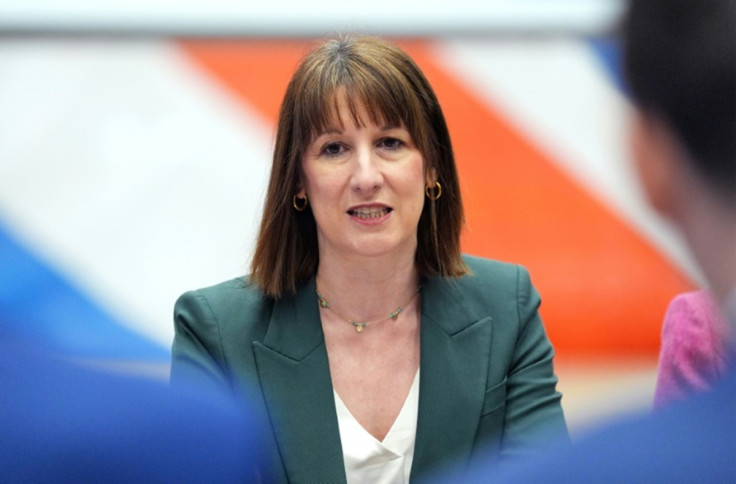Reeves' Bold Pledge: Guaranteed Paid Placements for Unemployed Youth – Promising Rate Cut or Could It Spark Labour Fears?
'It's bad for business, bad for taxpayers, bad for our economy,' she warns of inaction's scars

Rachel Reeves, Chancellor of the Exchequer, electrified the Labour Party conference with a daring youth unemployment crackdown, vowing guaranteed paid placements for those idle on benefits for 18 months, aiming to slash NEET numbers in 2025.
As the Bank of England held rates at 4 per cent on 18 September 2025, Reeves' promise raised hopes of future cuts to boost the economy. Yet, the threat of sanctions for refusals stirred unease, fuelling fears of coerced labour amid rising youth joblessness.
With 621,000 young people unemployed between May to July 2025, can this bold move revive prospects or ignite backlash against forced placements in an already strained job market?
621,000 Jobless Youth to Receive Mandated Paid Placements
Reeves pledged to end long-term youth unemployment by offering every 18- to 21-year-old on Universal Credit for 18 months a guaranteed paid work placement. The initiative builds on the Get Britain Working white paper's Youth Guarantee.
Trailblazer schemes will launch in eight English mayoral areas from spring 2025, providing apprenticeships, training, or jobs to combat the 13.8 per cent youth unemployment rate. Refusals without valid excuse will trigger benefit sanctions, aiming to foster contribution in a Britain where hard work earns fair reward.
The plan echoes the 1997 New Deal's success in halving youth joblessness, but 2025's 948,000 NEETs between April to June demand urgent action. Reeves declared, 'I will never be satisfied while too many people's potential is wasted, frozen out of employment, education, or training.' Full rollout details will emerge in the 26 November 2025 Budget, targeting those furthest from the labour market.
Bank Holds Rates Steady: Will Reeves' Pledge Signal Growth?
The Bank of England held rates steady at 4 per cent in September amid inflation worries, leaving Reeves' fiscal push as the economy's main stimulus. Her youth scheme could inject vitality into a market with vacancies approaching levels last seen during the pandemic, potentially paving the way for 2025 rate cuts if unemployment dips.
Economists view the move as a precursor to looser policy, easing pressures on young borrowers and encouraging hiring. Yet, Reeves urged ministers to support the Bank's inflation fight through work incentives rather than monetary easing. With jobless claims up 3,000 year-on-year to 621,000, the pledge promises a virtuous cycle of skills and spending. 'It's bad for business, bad for taxpayers, bad for our economy,' she warned of inaction's scars.
On 28 September 2025, Politics UK posted on X: 'Rachel Reeves has announced that every young person who has been on Universal Credit for 18 months without earning or learning will soon be offered a guaranteed paid work placement. Those that refuse the offer will face losing their benefits.'
🚨 NEW: Rachel Reeves has announced that every young person who has been on Universal Credit for 18 months without earning or learning will soon be offered a guaranteed paid work placement
— Politics UK (@PolitlcsUK) September 28, 2025
Those that refuse the offer will face losing their benefits
The post captured the widespread debate on balancing opportunity with compulsion.
Sanctions Spark Labour Fears: Will Coerced Placements Erode Worker Rights?
Critics decried the benefit cuts as punitive, fearing they coerce vulnerable youth into low-wage roles especially as National Insurance hikes squeeze small businesses. The Federation of Small Businesses (FSB) welcomed reprioritising funds but urged support for over-25s and those with health challenges.
FSB's chair of policy and advocacy Tina McKenzie said, 'Reprioritising spending from employment programmes which aren't working to this type of scheme is exactly the way to get much-needed bang for taxpayer cash.'
Opposition warned of a 'good citizen test' vibe, linking the scheme to broader migration curbs, as youth NEET rates hit 948,000—or one in eight 16- to 24-year-olds.
Reeves remained resolute: 'Just as the last Labour government... abolished long-term youth unemployment, I can commit this government to nothing less.' Balancing fears, the scheme eyes voluntary uptake through incentives.
As 2025's labour market tightens, with East Midlands youth unemployment at 18.7 per cent, success hinges on partnerships. Reeves' vision of a contributory Britain could heal divisions if it delivers real skills without alienating the young.
© Copyright IBTimes 2025. All rights reserved.





















